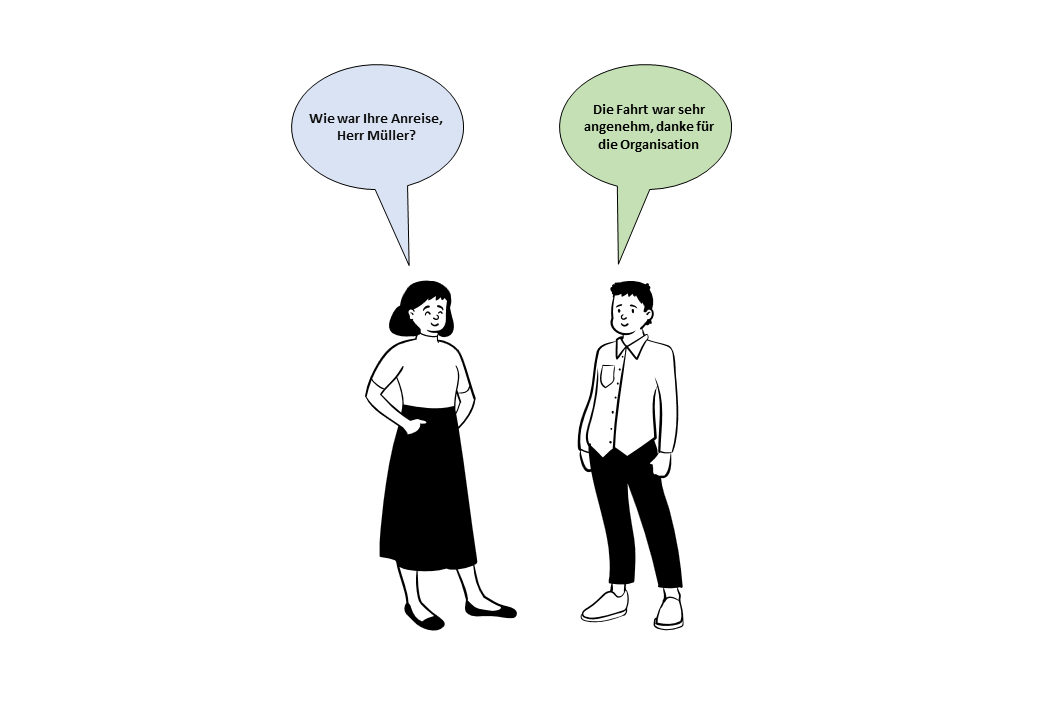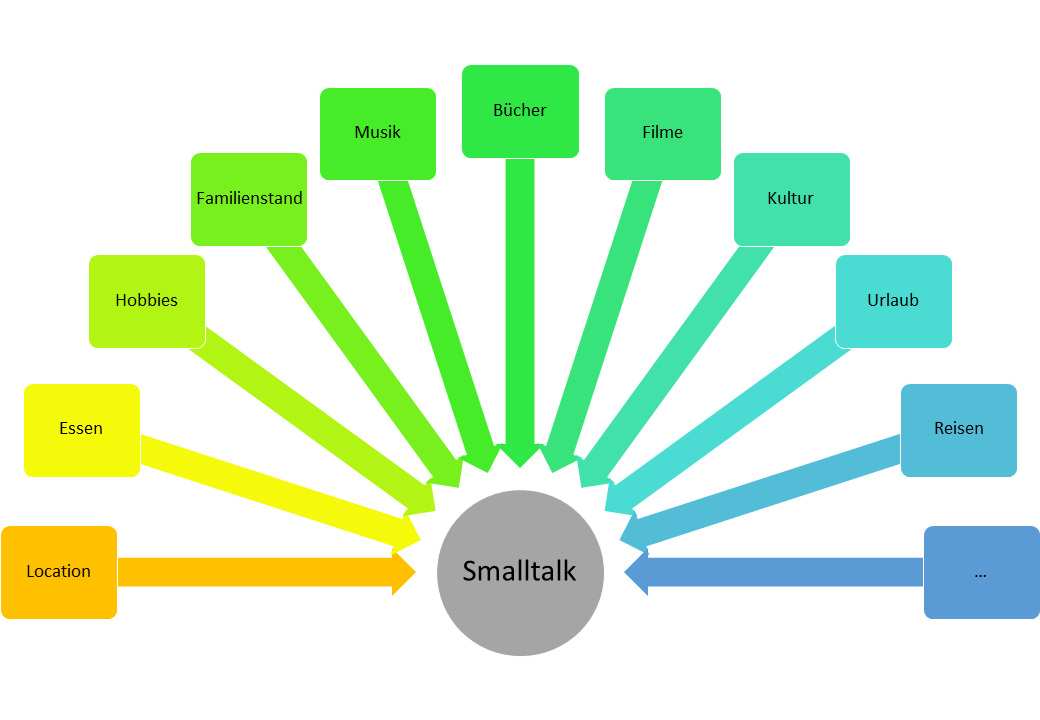Small Talk for a Successful Conversation Start
Are you afraid to approach other people? Here are some tips and exercises for good small talk.
Small Talk for a Successful Conversation Start
Small Talk for a Successful Conversation Start
The event of the year is coming up: your company's summer party. This year, it's going to be a huge event because the founder is celebrating his company anniversary. All business partners, service providers, and customers are invited. Since you have taken on the position of department head this year, this event is of particular importance to you. At this party, you can show your best side, make and deepen (business) contacts. But how do you best start a conversation with potential partners? After all, you don't want to jump right in and you want to get to know your conversation partners better first to be able to assess them.
Small talk is an excellent way to start a conversation with strangers.
What is Small Talk?
Small talk is a casual, informal conversation. It helps to get in touch with strangers. Small talk is not about deep conversations. It serves to break the ice, make (professional) contacts, and sometimes also to lighten an awkward situation. Especially in the job, small talk can help to warm up to the other person through a casual, "trivial" conversation and pave the way for a successful professional discussion.

Where Do We Need Small Talk?
A small chat can take place anywhere, and we can incorporate it everywhere. Whether shopping, at the checkout, in the park, at the gym, at the doctor's, or at the neighbor's birthday party.
But especially in professional life, small talk is indispensable. It's not just about a nice chat with a colleague in the coffee kitchen. Even a good job interview starts with a short, introductory conversation. This is intended to help relieve the applicant's tension, create a pleasant atmosphere, and give the HR personnel a first impression of the potential employee.
Also, at trade fairs, events, meetings, and Christmas parties, small talk helps to lighten the situation, win potential business partners, and get to know people.
Ideally, we remember what we talked about with our conversation partners. If there is a later reunion, we can refer to our last conversation, thus having a great conversation starter again and collecting bonus points with our counterpart.
Bad Small Talk
There is a difference between good and bad small talk. Bad small talk refers to conversations that are monotonous and/or one-sided. If our conversation partner only answers questions with "yes" and "no," it becomes difficult to have a fluid conversation. Then we should consider whether it's due to our questioning technique or if our conversation partner simply doesn't feel like small talk.
What we should definitely avoid:
- Closed questioning (yes/no questions)
- Crude "pickup lines"
- "Interrogation"
- Showing disinterest (e.g., avoiding eye contact, "looking around wildly")
- Holding a monologue
- Bringing up political topics
- Exuding superiority
- Private and professional problems
- Gossip
- Sexism
- Religious views
Tips for Good Small Talk
Now we already know what we shouldn't do in small talk. If we have to pay attention to so many things now, how can we still start a casual conversation? Don't worry - with a little practice, it's not that difficult!
To make small talk easier and more successful, here are a few helpful tips:
- Open and friendly body language and facial expressions
- Appear authentic
- Give compliments
- Maintain eye contact
- Ask open questions (encourage the conversation partner to talk)
- Talk about the location we are in
- Talk about the buffet (food)
- Hobbies
- Find commonalities (marital status, music, books, movies, etc.)
- Ask how the journey was and if the hotel is okay
- Direct address by name
- Show the conversation partner by nodding that you are listening with interest
- Active listening
- Ask questions
These are already many helpful pointers on what small talk can look like. Of course, the topics always depend on the situation and the place.

Of course, there are also people who find it difficult to approach (strange) people and start a conversation with them off the cuff. But especially for introverted people, small talk is a good help to make contacts. It's normal for this to be a hurdle at first.
But making small talk can be practiced:
- Speak to the person behind you at the supermarket checkout
- Talk to other dog owners while walking the dog
- Ask the person at the next table in a restaurant/café what delicious thing they are eating or drinking
- Ask for help in the parking lot to lift the heavy box into the trunk
- Practice body language and facial expressions in front of the mirror
- Before events, meetings, or job interviews, write down various topics you can start a conversation with
We see, there are enough opportunities to make small talk. It takes a bit of courage at first, but the more often we speak to people, the more confident we become and the more comfortable we feel in these situations.
